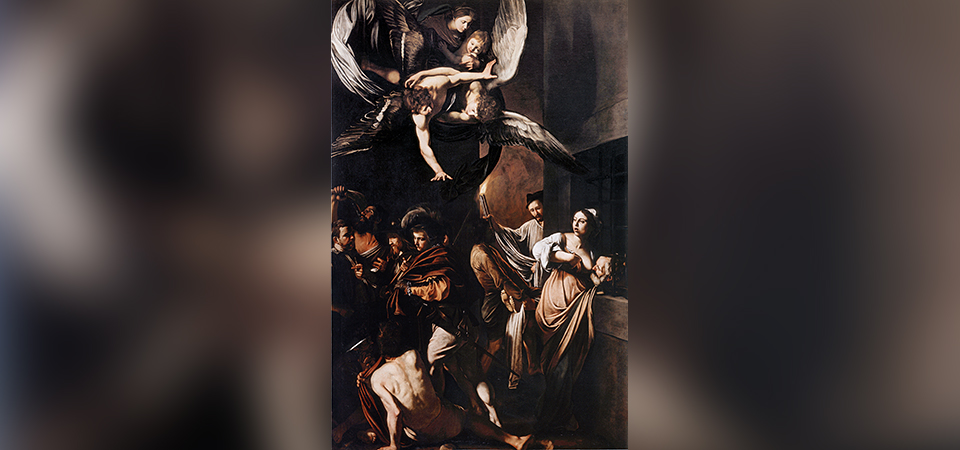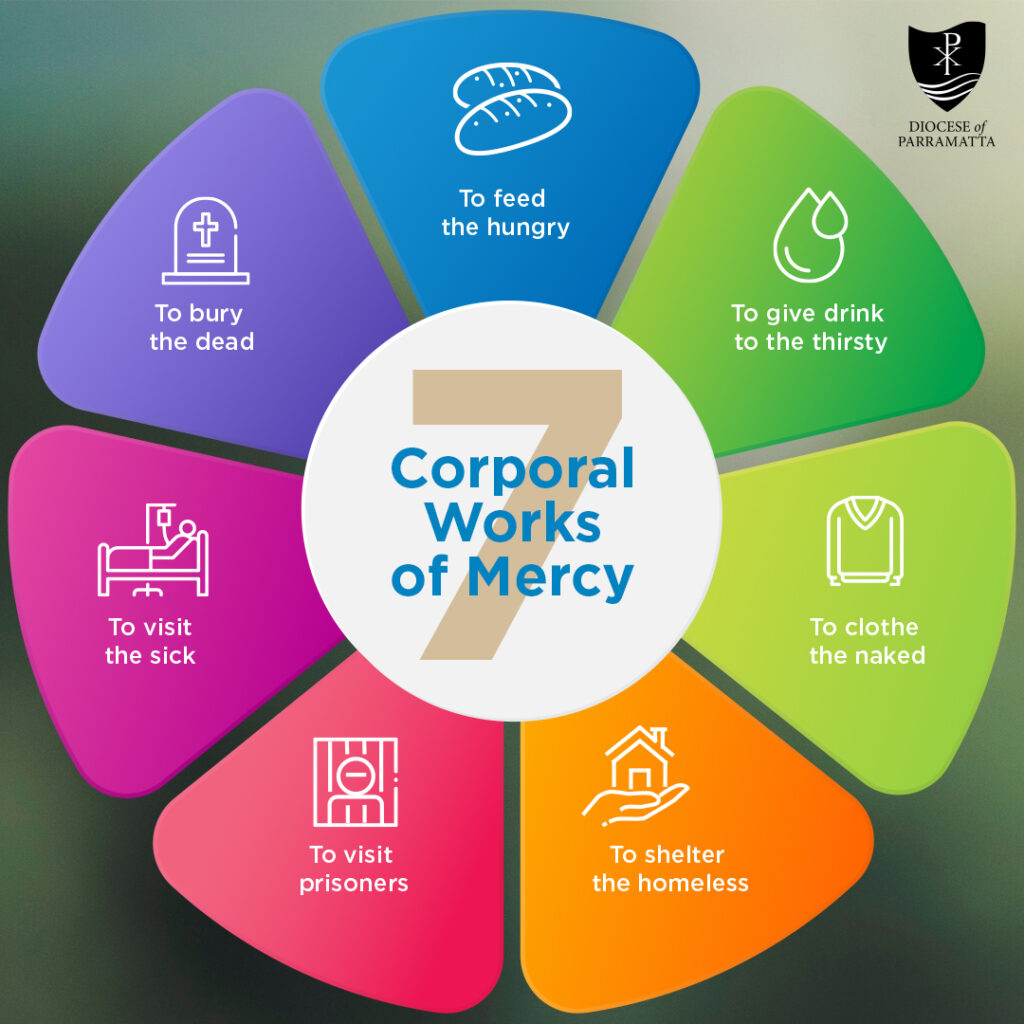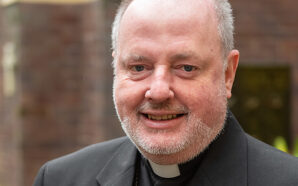For the remainder of Lent 2023, Catholic Outlook republishes a series of Lenten reflections on the Corporal works of Mercy by Br Mark O’Connor FMS, Vicar for Communications in the Diocese of Parramatta.
The practice of the works of mercy is a sure sign of the real presence of the Spirit of the risen Jesus in a disciple’s life. Hence, the beautiful tradition of the seven acts of mercy, corporal and then spiritual.
Think of the wonderful painting, The Seven Acts of Mercy, by Caravaggio (circa 1607). It is housed in the Church of Pio Monte della Misericordia in Naples. Originally, it was meant to be seven separate panels around the church. However, Caravaggio produced arguably his greatest masterpiece by combining all seven mercies in one composite. The angel at the centre of Caravaggio’s altarpiece transmits the grace that inspires humanity to be merciful.

The Seven Acts of Mercy by Italian painter Caravaggio, circa 1607. The painting depicts the seven corporal works of mercy in traditional Catholic belief, which are a set of compassionate acts. Image: Wikimedia Commons.
One ‘angel’ of grace for our times was Dorothy Day. She embodied living out the corporal works of mercy, especially ‘feeding the hungry’. What was the core of her charity?
In Day’s own words: “We feed the hungry, yes. We try to shelter the homeless and give them clothes, but there is strong faith at work; we pray. If an outsider who comes to visit us doesn’t pay attention to our praying and what that means, then he’ll miss the whole point.”
At the heart of what Dorothy Day did were the ‘works of mercy’. For her, these were not simply obligations Our Lord imposed on his followers. As she said on one occasion to famous Harvard psychiatrist Robert Coles: “We are here to celebrate him through these works of mercy.”
RELATED: The Scandal of the Works of Mercy
That is why Day would insist: “Those who cannot see the face of Christ in the poor are atheists indeed.” This means she believed that Christ has left himself with us both in the Eucharist and in those in need. “What you did to the least person, you did to me.”
‘Feeding the hungry’ did not mean emphasis on a crass materialism. Day’s early followers tell the story of a donor coming into the offices of the Catholic Worker and giving Day a diamond ring. Day thanked her for it and put it in her pocket. Later, a rather demented lady came in – one of the more irritating regulars at the house. Day took the diamond ring out of her pocket and gave it to the woman.
Someone on the staff said to Day: “Wouldn’t it have been better if we took the ring to the diamond exchange, sold it, and paid that woman’s rent for a year?” Day replied that the woman had her dignity and could do what she liked with the ring. She could sell it for rent money or take a trip to the Bahamas. Or she could enjoy wearing a diamond ring on her hand like the woman who gave it away.
“Do you suppose,” Day asked, “that God created diamonds only for the rich?”
Day fed the hungry because she lived the ‘little way’. The phrase was one she borrowed from St Therese of Lisieux, the Little Flower. Change starts not in the future but in the present; not in Canberra or at the stock exchange but where I stand. Change begins in the ordinary actions of life, how I live minute to minute, what I do with my life, what I notice, what I respond to, the care and attention with which I listen, the way in which I respond. As Day once put it: “Paperwork, cleaning the house, dealing with the innumerable visitors who come all through the day, answering the phone, keeping patience and acting intelligently, which is to find some meaning in all that happens – these things, too, are the works of mercy, and often seem like a very little way.”
Dorothy Day reminds us that we are here to follow Christ. Christ has told us plainly about the Last Judgement. We will be judged on our readiness to let the mercy of God pass through us to others. Love is the measure.









